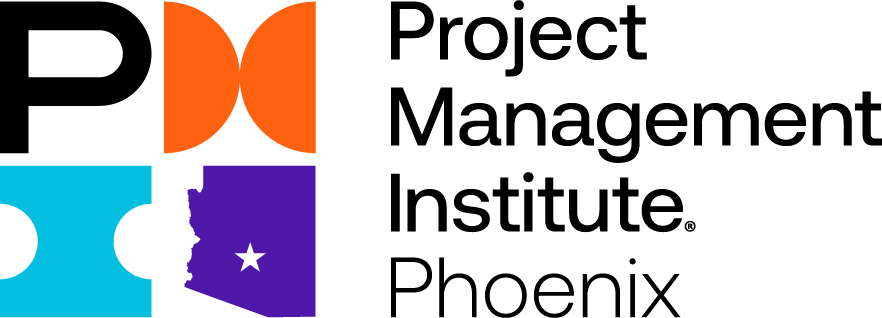Rebles Guide to PM
-
PMBOK vs PRINCE2 explained: key differences and similarities

I often get asked about the difference between A Guide to the Project Management Body of Knowledge (the PMBOK® Guide) and PRINCE2®, usually because the person is asking is working in an environment that references one or the other, or both.

Why listen to me?
I first earned my PRINCE2 Practitioner in 2004, and I’ve been a member of PMI since 2010. I’ve been working with both approaches for many years.
On the surface, they can look similar. Both are well-established, globally recognized, and widely used across industries. However, they are not trying to do the same thing.
This confusion has increased in recent years as both frameworks have evolved. The PMBOK Guide looks very different from earlier editions (the 8th edition came out in 2025), and the PRINCE2 manual has also shifted its emphasis, particularly around people, sustainability, and adaptability.
So let’s explain what each framework is for, where they differ, where they align, and how they are commonly used together in real organizations.

What PMBOK and PRINCE2 are, at a glance
Before comparing them directly, it is important to be clear about what each one is designed to do. And neither of them are going to force you to make Gantt charts!
What PMBOK is
The
PMBOK Guide is published by the Project Management Institute. It is not a delivery method or a step-by-step handbook, so it won’t tell you how to run a project from start to finish (there’s no “do this, then that”). Instead, it is a body of knowledge and a standard for the profession of project management.The 8th edition continues the move away from a prescriptive process model (although does include 40 processes) and toward principles, performance, and value delivery.
PMBOK 8 focuses on what effective project management looks like, not on exactly how to perform every activity. It is deliberately non-prescriptive and expects practitioners to apply professional judgment based on context.
The Standard for Project Management (which is in the same physical book) and the Body of Knowledge are intended to work across industries, delivery approaches, and organizational models. The Guide supports predictive,
agile , and hybrid ways of working without favoring one over the others.[lasso id="19409" label="" link_id="303589" ref="amzn-pmbok-guide"]What PRINCE2 is
PRINCE2 is a project management method (Projects In Controlled Environments). It provides a defined structure for managing projects, including roles, governance, lifecycle stages, and management products.
The method is designed to be tailored, but it’s still prescriptive because it covers the ‘how’ of getting a project done. It explains how a project should be set up, governed, controlled, and closed. PRINCE2 places strong emphasis on accountability, business justification, and management control.
PRINCE2 is owned by PeopleCert. It used to be owned by the UK government through The Stationery Office, but that changed a while back.
I often see that PRINCE2 is used in environments where clarity of responsibility and formal decision-making are important, such as the public sector or regulated industries.
[lasso id="34466" label="" link_id="303590" ref="amzn-managing-successful-projects-with-prince2-6th-edition-2022"]The fundamental difference: guide versus method
Can you see the difference? I believe it’s in the intent.
The
PMBOK Guide is a body of knowledge. It describes principles, domains, and outcomes that support effective project delivery. It helps practitioners understand what good project management looks like and how to think about their role.PRINCE2 is a method. It provides a structured way to manage a project, including defined roles, processes, and governance mechanisms. It helps organizations control projects consistently and transparently.
In simple terms, PMBOK supports decision-making, while PRINCE2 supports organization and control. They answer different questions and are often complementary rather than competitive.
One way to think about it is:
- The
PMBOK® Guide helps you decide what to do. - PRINCE2® helps you decide how to organise and control it.
Another BOK: APM
The Association for Project Management also has a Body of Knowledge (APM BOK). This is another take on collecting the wisdom of the profession into a guide for project managers. This one focuses a lot more on soft skills.
Governance and accountability
Governance is one of the clearest areas of difference between the two books.
PMBOK recognizes the importance of governance but does not define a specific governance structure. It assumes that governance exists at an organizational level and that projects operate within it. Accountability, escalation paths, and decision authority vary depending on the organization and context.
And also with which project delivery method you are using – predictive, iterative or hybrid.
PRINCE2, on the other hand, defines governance and project assurance explicitly. It introduces a Project Board with clear accountability split between formal roles:
- Executive
- Senior User
- Senior Supplier (who could be internal).
Tolerances are used to define when the project manager can act independently and when issues must be escalated, for example, when project performance falls outside of set targets that you’ve predefined with your sponsor.
However, both books talk about tailoring project management procedures, so your governance is fit for purpose.
Principles and mindset
Both frameworks are principle-led, but they approach principles differently.
PMBOK 8 is built around a set of project management principles that emphasize value delivery, systems thinking, quality, leadership, sustainability, and collaboration. These principles are behavioral and mindset-oriented. They describe how effective project professionals think and act rather than what steps they follow.
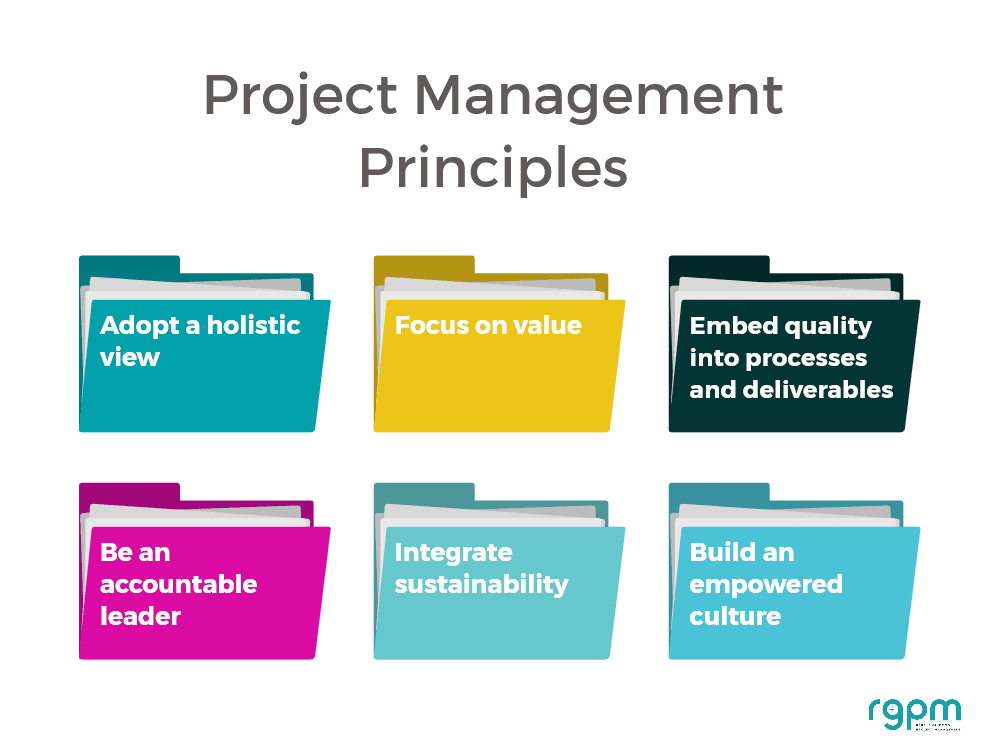
PRINCE2 retains its seven principles, which must be applied for a project to be considered PRINCE2-compliant. These principles include continued business justification, learning from experience, defined roles and responsibilities, managing by stages and by exception, focusing on products and tailoring to suit the project. The latest version places more emphasis on people and sustainability than earlier editions.
Both frameworks expect tailoring and professional judgment. Neither promotes a one-size-fits-all approach, even though PRINCE2 is more structured in how that tailoring is applied.
Knowledge areas and practices
Informally, many project managers still refer to Knowledge Areas, but they are no longer in the
PMBOK Guide . Instead, the PMI guidance refers to performance domains.PRINCE2 has something similar – practices.
Both performance domains and practices are kind of ‘things you need to consider and actively manage and bear in mind during a project’. Key callout areas for a project manager to pay attention to.
As you’d expect from books put together by different groups, they are different, but there is a bit of overlap.
The PRINCE2 practice of Organizing is all about securing resources, project roles and the project management team. Risk management is the same for each. Governance is covered by Business Case and Progress (which is about tracking actuals and delivery management).
Note that there is a whole People section in PRINCE2 outside of the Practices which aligns with Stakeholders, so that's why there isn't a People Practice.
Performance Domain Practice Finance Business case Resources Organizing Schedule Plans Scope Quality Risk Risk Governance Issues Stakeholders Progress There’s so much you could say about project management I understand the authors had to limit what they covered.
Lifecycle and structure
The PMI guidance does not define a fixed project lifecycle. It acknowledges that projects can follow different lifecycles depending on context, uncertainty, and delivery approach – an
agile project using Kanban will look quite different from a predictive project using a more waterfall development approach.The performance domains in PMBOK 8 are intended to be engaged throughout the project rather than followed in a strict sequence.
PRINCE2 defines a lifecycle based on management stages. Projects are authorized in stages, with formal decision points at stage boundaries. For a project manager, this is great news as it makes authorizing funding and moving through the project a lot easier (I can speak from experience here).
This structure supports governance, funding decisions, and risk control, particularly in complex or high-risk environments.
The key difference is flexibility versus structure. PMBOK allows the lifecycle to emerge from the context, while PRINCE2 embeds lifecycle control into the method itself.
Documentation and management products
Documentation is another area where people often think the guidance differs.
PMBOK does not mandate specific documents. It focuses on outcomes, information flow, and decision-making rather than templates. Artifacts are expected to be appropriate for the project and organization.
PRINCE2 defines a set of management products, such as the Business Case, Project Plan, Risk Register, and Issue Register. These products support governance and control, but they can feel heavy if they are not tailored sensibly.
One of the ‘concerns’ I hear about PRINCE2 all the time is that it is bureaucratic – often from people who haven’t read the book or who don’t work in a PRINCE2 environment. I think that criticism was justified a long time ago, but the method has been revised so much in recent years that you can’t say it’s too heavy any longer.
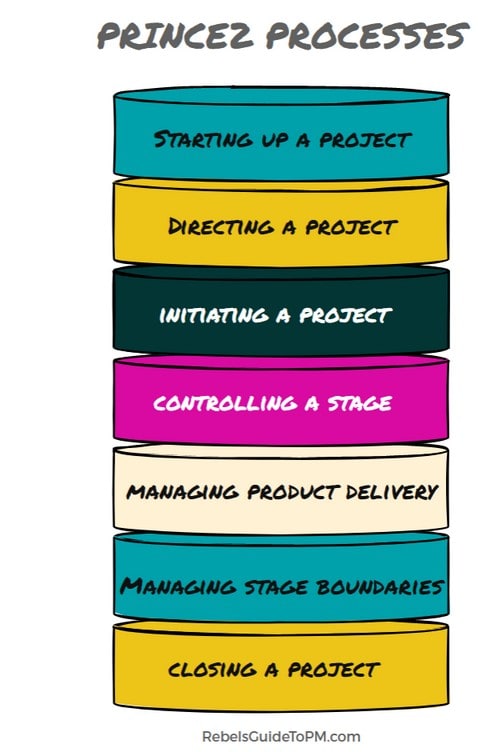
The role of the project manager
PMBOK treats the role of the project manager as contextual. Authority, responsibility, and influence vary depending on the organizational environment. Leadership, facilitation, and integration (the ability to bring all the strands of a project together) are emphasized alongside technical skills.
In practice, PMBOK relies more heavily on professional judgment to determine what documentation is needed, while PRINCE2 assumes that defined products enable transparency and accountability.
PRINCE2 defines the project manager role very clearly. The project manager manages the project on behalf of the Project Board and operates within agreed tolerances. Authority is explicit and bounded.
In practice, that rarely happens, but it’s good to have goals!
This difference in how the role is set out makes sense with a bigger picture view. PRINCE2 delegates the project manager authority to support governance, while PMBOK reflects the variability of real-world project environments.
Focus on value and benefits
Both PMBOK and PRINCE2 emphasize value – although the value approach is something that feels new in PMBOK 8 (there has been some social media chatter about this!).
The
PMBOK Guide focuses on value delivery throughout the project lifecycle. It recognizes that benefits realization often extends beyond the project itself and may sit with operational or business owners.Nothing radical there, anyone who has ever looked at project benefits realization management will have thought that way for years.
PRINCE2 embeds value through the Business Case and the principle of continued business justification. A project should only continue while it remains viable, desirable, and achievable.
Again, not rocket science. The moment a project isn’t going to meet business needs is the moment you should be questioning whether we still need to work on it.
Where PMBOK and PRINCE2 align
The
PMBOK Guide and PRINCE2 have more in common than many people expect.As we’ve seen, both are principle-based. Both require tailoring. Both support predictive projects, agile teams, and hybrid environments (there is a specific PRINCE2
Agile course/book which has not got great reviews from people I know who have done it and teach it – but it does exist).Both books take up space on your desk and feel reassuringly complete. They both assume competent professionals are in post who can apply judgment rather than follow rules blindly.
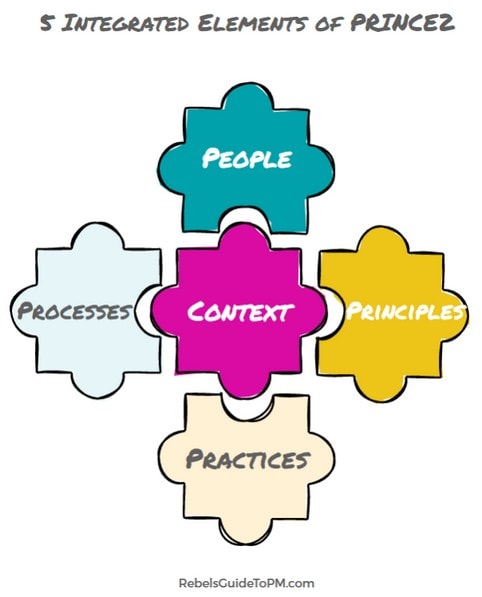
Which should you use and when
The choice between following what the
PMBOK Guide says or what PRINCE2 says is rarely in the hands of you as the project manager. And you don’t need to be binary about it either.- Bodies of knowledge, like the
PMBOK Guide , define what good looks like(at a given moment in time, based on the collective wisdom of the contributors, so it cannot be exhaustive) - Project management methods, of which PRINCE2 is one, define how to manage and govern a project in a particular way.
PMBOK can be the wrapper around the individual processes and delivery method you use. So while you could use both, in practice people don’t because that truly would be bureaucratic overkill – and the
jargon is slightly different as well.In my experience, European organizations have traditionally leant towards PRINCE2 and US organizations tend to stick with PMI’s methods. But now APM is the Chartered Body for the Project Profession in the UK, more and more UK organizations are requiring APM credentials, and for that BOK to be used.
As an aside, the APM BOK is also non-prescriptive and could be used as a wrapper for PRINCE2 delivery teams.
A note on certification
It is worth separating frameworks from certifications. The
PMBOK® Guide underpins PMI credentials such as Project Management Professional (PMP)® and the Certified Associate in Project Management (CAPM)®, while PRINCE2 certification focuses on applying the PRINCE2 method at Foundation and Practitioner level.Can you use PMBOK without having the
PMP certification? Absolutely! The same goes for PRINCE2 as well. While your employer might want you to have one or the other certification, you can do your job without either.Holding a certification doesn’t mean you have to use that approach exclusively. You probably know many certified professionals who work in a blended environment and draw from multiple sources of good practice, including frameworks and project management methodologies that have been built in-house.
So which is better?
That’s the wrong question! The question is not whether The
PMBOK® Guide or PRINCE2 is better. They serve different purposes. Neither of them promise project success either, by the way.Your project management office could choose to use either and both choices are perfectly valid.
If you want to be truly great at managing projects, you need to realize that it’s isn’t the method you follow that will make your projects successful. It’s how you apply what you know, engage stakeholders, get approval, navigate your internal politics and keep the project team motivated to deliver something that everyone agrees is going to be a good idea.
This article first appeared on Rebel's Guide to Project Management and can be read here: PMBOK vs PRINCE2 explained: key differences and similarities
- The
-
Using RAG status in Agile projects

RAG (Red, Amber, Green) status reporting is often associated with traditional, plan-driven project management. As a result, I’ve sometimes seen it dismissed as incompatible with
Agile ways of working.In practice, that is rarely true. Plus, stakeholders love RAG reporting as a universal way to quickly understand what is going on. So
Agile teams can’t escape using it! And shouldn’t try.Agile teams still need to communicate progress, project status, risk and confidence to stakeholders. The difference is not whether you report RAG with your updates, but how you do it. This article explores how RAG status in
Agile environments can work without underminingAgile principles or creating unnecessary overhead.Why status reporting still matters in
Agile Do I even need to explain this?
Agile teams focus on delivering value iteratively, responding to change, and maintaining a sustainable pace. None of that removes the need for visibility.Stakeholders still want to know:
- Are we on track to deliver what we said we would?
- Are there risks we should be aware of?
- Do we need to intervene or make decisions?
RAG status, used thoughtfully, can provide a simple, shared language for answering those questions. The key is to integrate it into existing
Agile events and artefacts, rather than bolting on a separate reporting layer.Understanding RAG status in an
Agile contextAt its simplest, RAG status is a health indicator:
- Green: on track, no material concerns
- Amber/Yellow: at risk, attention or action required
- Red: off track, intervention needed
In traditional environments, RAG status is often applied to the whole project against a fixed baseline, or as an aggregate through different project components. For example, a leader might RAG project schedule, budget, scope and then aggregate that into a single RAG color for reporting.
Agile environments are different. Work is incremental, scope evolves, and progress is measured through delivery rather than adherence to an upfront plan.
This means color coding reports in
Agile is usually:- Time-bound (for example, sprint-level rather than whole-project)
- Outcome-focused (value delivered, not tasks completed)
- Dynamic, changing as new information emerges.
To be fair, even projects managed with linear methodologies often find that their RAG status is dynamic!

How to report RAG status in Scrum
Scrum already includes built-in opportunities for inspecting progress and adapting plans. RAG status can be layered into these without adding new ceremonies or additional bureaucracy.
Sprint planning and sprint reviews
During sprint planning, a simple RAG assessment can be used to test confidence in the sprint goal. For example:
- Green: confident the sprint goal is achievable
- Amber: risks identified that could affect delivery
- Red: sprint goal unrealistic without change.
The team can agree on this together, guided by the Scrum Master or project manager (if you have those roles).
Sprint review reports
In sprint reviews,
agile RAG reporting can help frame the conversation with stakeholders. Rather than focusing only on what was delivered, the team can also discuss delivery confidence, emerging risks, and what that means for upcoming work.Daily stand-ups
Daily stand-ups are not status meetings for management, but teams often find value in using informal RAG language internally.
For example, a team member might say they are “Amber today” due to a dependency or blocker. The focus should be on ‘back to Green actions’. What does the team or squad need to do so that the blocker is resolved? Build your recovery plan into what happens next.
Read next:How to get a project back to Green
RAG becomes a familiar shorthand for stakeholders without detailed
Agile knowledge, and a way to articulate confidence – alongside your existing burndown charts and other tools.How to use RAG status with Kanban
Kanban’s visual nature makes it particularly well suited to RAG-style indicators. Many Kanban software tools will let you add a custom field for status or progress, and you can color code digital sticky notes (and physical ones) to easily see what activities need attention.
Visualising RAG on Kanban boards
RAG can be applied at different levels on a Kanban board:
- Individual work items (for example, a blocked or at-risk ticket)
- Columns or stages (highlighting bottlenecks)
- Classes of service or workstreams.
Managing flow and bottlenecks
One of Kanban’s strengths is its focus on flow. RAG indicators can reinforce this by highlighting where work items have aged beyond expected thresholds. This is tedious to do by hand so set up automations to move the status on once the threshold is breached.

Supporting continuous delivery
Because Kanban operates in a continuous flow, RAG statuses for individual items should be reviewed regularly and updated in near real-time. This avoids the trap of stale status reports that no longer reflect reality, but it is more work for the person managing the ticket.
Benefits of using RAG status in
Agile frameworksI love RAG status reporting as it’s easy, universally understood (although make sure stakeholders do understand what the colors mean). It’s a huge value add for stakeholders and I’ve used it throughout my career.
It gives you:
Better visibility and transparency. RAG provides a quick, accessible snapshot for people who are not embedded in day-to-day delivery, without requiring detailed explanations of
Agile metrics. I know you love velocity, but who outside the team really understands it?Proactive risk management.Let’s normalize Amber and Red status as signals rather than failures. Teams are more likely to talk about issues early (when they are easier to address) than hide them if they aren’t ashamed to move the status to Red.
We’re communicating RAG status in
agile teams and everyone knows what it means.Practical tips for implementing RAG in
Agile teamsIf you want to introduce traffic light reporting into an
Agile environment, a few principles will help it stick.Start small and lightweight
Do not introduce new project reports or meetings purely for RAG. Do you really need a new project review meeting? I’m guessing no.
Use what you have
Use existing ceremonies and artefacts. The
agile project health reporting that you already do could include the Red, Amber, Green status indicator.Agree what the colors mean
Definitions should be explicit and shared, and ideally aligned to other projects using non-Agile approaches and reporting RAG status.
Get your PMO definitions and use those – and if they really aren’t fit for purpose, have a good think about why so you can justify why an Amber adaptive project is not the same as an Amber linear or predictive project.
Focus on outcomes, not activity
Base RAG status on delivery confidence, risks and value, not on how busy people look! Software development keeps people busy – we know that already!
Schedule slippage might be one of the criteria that pushes your sprint into Amber, if you can’t hit all the story points you expected to.
Keep it honest
If everything is always Green, the status is meaningless. Psychological safety matters. I’ve talked about watermelon projects before –
agile deliveries are not special in that respect.Review and adapt
If progress reporting starts to feel bureaucratic or unhelpful, change it! You would for any other part of an
agile methodology that wasn’t working. You can do it with this too. Chat about it in theagile retrospective and update the ways of working for next time.Bringing it all together
RAG status and
Agile are not opposites – at least, that’s what I think.Agile provides the detail, learning loops and delivery rhythm. RAG provides a shared, high-level language for confidence and risk. Together, they can improve transparency, trust and decision-making for portfolio reporting.
What do you think?
This article first appeared on Rebel's Guide to Project Management and can be read here: Using RAG status in Agile projects
-
MPlaza PRINCE2® Practitioner Online Course Review (for 2026)

Welcome to my Mplaza PRINCE2® Practitioner review! I gained a lot of project management knowledge and confidence from doing my PRINCE2 course. It was a few years ago now, but the experience gave me the vocab, structure, and processes to confidently deliver projects.

My PRINCE2 training experience
I first passed the PRINCE2 exams in 2004, so I've got a lot of experience with both the training materials, content and using the approach in real life.
BUT… it’s hugely important to choose a good quality PRINCE2 course. If I remember rightly, the training firm I used when I took the course again when my certificate expired was nowhere near as good.
Fortunately, I was only there for a refresher, but if it’s your first time taking PRINCE2 and you want to pass on the first attempt – then my recommendation for the best online PRINCE2 Practitioner training is the Mplaza course I’m about to tell you about.
In this MPlaza PRINCE2 Practitioner course review for project managers, I’ll share:
- Whether the course is worth it (spoiler: it is)
- Why it’s a good choice for project managers
- How long you’ll need to spend studying before you can expect to pass the exam.
I’ve spent many hours reviewing the materials and going through the lessons so you can save time making the decision about the best PRINCE2 certification course for you.
If you want to learn more about my thought process for validating online training, I have written before about how to choose a PRINCE2 course online, and that explains what I think is important for virtual training.
The Practitioner course is fully online, so you can study in your own time. Build your confidence for the exam with the practice materials. Many competing course packages give you less content or don’t include the exam fee and don’t come close to Mplaza’s quality.

Who is PRINCE2 Practitioner for?
You need to have passed PRINCE2 Foundation before you can take the Practitioner exam or hold an alternative certification (PMP®,
CAPM ®, or an IPMA Level A, B, C, or D certificate).You don’t need to have any particular project management experience, so you can be working in another role with no relevant work experience.
However, I can say that the exam is easier, having worked in a project environment. The people in my class (I took my first Practitioner exam in a classroom) were a mixed group of people working as project managers and those who were yet to break into the job.
I believe the people who didn’t work with projects every day found the experience of learning harder simply because there is a ton of stuff you have to pick up, the
jargon can be obscure, and some of the processes don’t feel intuitive unless you have worked through them already.So, if you have some project experience, I would recommend PRINCE2 Practitioner. You can still do it without work experience, but expect to have to put in some more time to fully learn the concepts.
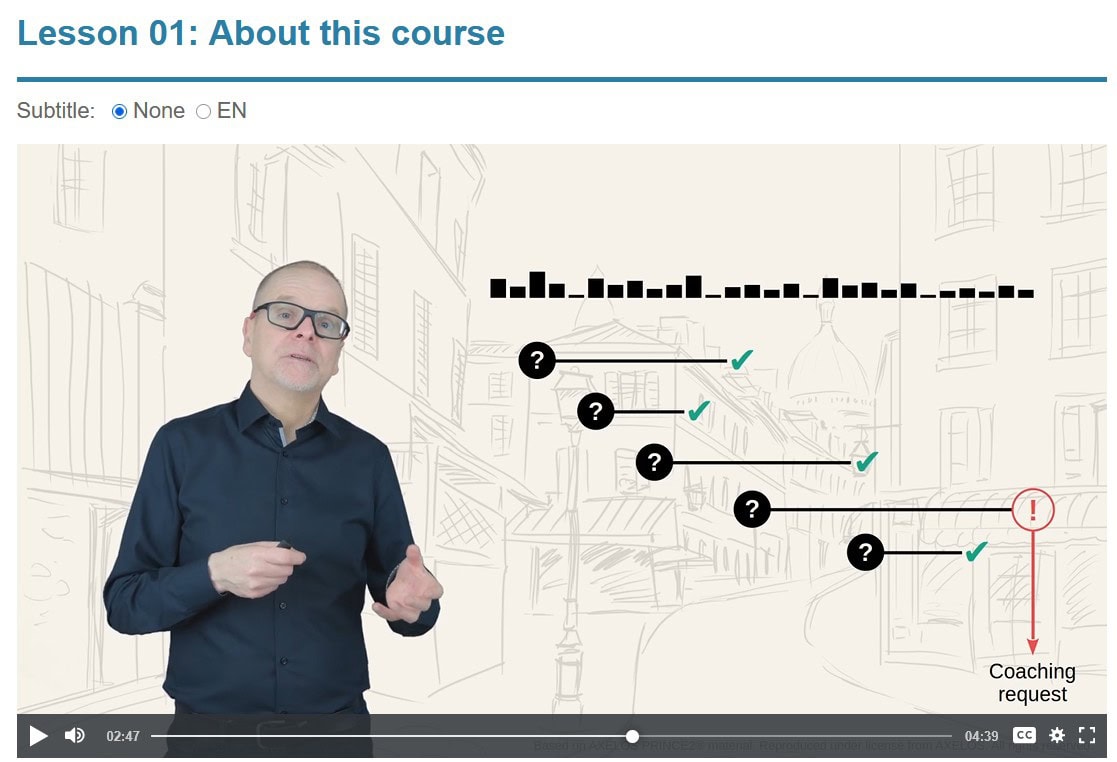
About the course and structure
This course offers everything you need to learn PRINCE2 and prepare for the PRINCE2 Practitioner exam.
It is equivalent to 48 contact hours of training. The lessons are 10-15 minutes, so you can fit them in during the day. Expect to spend about a week in total working through the materials.
You don’t need any special tech as the lessons are available via the Mplaza website, and you can access them anywhere with a web browser.
Which PRINCE2 Practitioner training package is right for you?
Mplaza offers three options for people who want to study for and pass the Practitioner exam.
[lasso id="5" label="" link_id="289775" type="table"]Best all-round option: Online course package
This self-study package includes:
- The eLearning course 42 (short) video lessons with English subtitles
- The exam simulator with 2 sample exams, and 270 questions (the equivalent of 4 exam papers) so you can test your knowledge
- The official voucher you need to take the exam online
- Pass guarantee.
This is the option that I would recommend for who have no prior experience. However, it will help if you work in a PRINCE2 environment (not necessary though). And you have to have done the PRINCE2 Foundation as a pre-requisite, either by taking PRINCE2 training online or in a classroom.
You get everything you need: excellent quality course content, access to practice exams to get confident for test day and the exam fee is included too.
Best for exam practice: Practitioner Exam Simulator
This option is just access to the best PRINCE2 exam simulator for Practitioner exams for one year.
This is the option that is right for you if you are studying with a provider that does not offer a tool for mock exams. I found it really helpful to do a lot of practice questions for PRINCE2 because the exam is not straightforward. You need to be able to interpret the options and make smart choices – and some of that is about knowing how questions are phrased.
Understanding the style and format of questions is very useful, and the exam simulator helps with that.
It includes the equivalent of 4 exam papers, but as the questions are dynamic, you’ll find you can take more than that and see different question/answer combinations.
Pros
The advantages of the MPlaza PRINCE2 Foundation course are:
- It’s amazing value. You get a lot of content for the price (and no filler stuff either)
- There is an active Facebook group which is helpful in case you get stuck or have questions. It’s also motivating to hear other students’ stories!
- There is no homework! Other courses rely on homework to get through the syllabus in time, but this course covers the content in other ways.
- The videos are great with nice visuals. The trainers are engaging and the conversational presentation style is easy to follow.
- There is a pass guarantee. You probably won’t need it. The course is so good and has excellent pass rates.
Frank and Nader come across as genuine experts in the subject matter. The customer service and responsiveness is great. You get access to their team of tutors too, so there is always someone around to offer help if you get stuck.
The course is fantastic value for money. The exam simulator is brilliant, and really cements what you need to know for the test.
Wondering if you really need the exam simulator? You do. Read more about it in my PRINCE2 exam simulator review for Practitioner.
Cons
The biggest disadvantage is that it does not come with any PRINCE2 books or a copy of the official PRINCE2 manual. The Foundation course gives you an electronic version of the manual, but the course listing for this Practitioner course no longer mentions you get a copy -- I'd expect you do, but worth checking before you buy if that's important to you.
If you do want a print version, you have to buy that separately. It’s available on Amazon or from the publisher and other bookshops. It costs around £80 so it’s quite an investment.
You don’t actually need the manual to do the course but it is referenced in some of the lessons. I found it helpful to have a print version of the book to make my notes in.
I recommend that you buy the printed manual for the exam because the exam is open book. You can use your manual during the exam – that’s an advantage you don’t want to miss out on!
[lasso id="34466" label="" link_id="289776" ref="amzn-managing-successful-projects-with-prince2-6th-edition-2022"]Other disadvantages:
- Students who learn better in a classroom environment should choose an in-person course instead of this. It’s good, but it’s not the same as learning with a group of your peers.
- There are no end-of-lesson quizzes. Each lesson ends with a summary but you can’t really test yourself unless you use the simulator.
Recommendation: Should you buy this course?
I love this PRINCE2 Practitioner online self-study course and exam simulator, so I think you should get it if you are planning on taking the certification.
I think it is well-put together, confidently delivered, and the student feedback is overwhelmingly positive. The team behind it are willing to help and committed to your success.
I recommend the training, which is exactly what you need if you want to show up for your test feeling confident and ready.
I should let you know that I am so impressed with Frank that I’m an affiliate for the Mplaza products, but I only recommend products I have tested out and am confident in.
This article first appeared on Rebel's Guide to Project Management and can be read here: MPlaza PRINCE2® Practitioner Online Course Review (for 2026)
-
MPlaza PRINCE2® Foundation Online Course Review (for 2026)

Welcome to my Mplaza PRINCE2® Foundation review! I owe a lot of my confidence as a project manager to the PRINCE2 course I took many years ago (I took it the first time in 2004).
The training gave me all the basics, the
jargon , and ability to plan and manage a project.BUT… it’s hugely important to choose a good quality course. I’ve lost count of the number of people who have had bad experiences with PRINCE2 training providers… and that’s a lot of wasted money.
In this PRINCE2 Foundation Management Plaza review for soon-to-be project managers, I’ll share:
- Whether the course lives up to the hype (spoiler: it does)
- Why it’s especially good for early career project managers
- How long you’ll need to spend studying before you can expect to pass the exam.
I’ve spent many hours reviewing the materials and going through the lessons so you can save time in your own course evaluation.
If you want to learn more about my thought process for validating online training, I have written before about how to choose a PRINCE2 course online, and that explains what I think is important for virtual training.
With the Foundation course, you can study in your own time and build your confidence for the exam. Many competing course packages give you fewer hours of material or don’t include the exam fee and don’t come anywhere close to Mplaza’s quality.
It even includes access to an active Facebook group where Frank – the lead trainer – is active pretty much every day.

Who is PRINCE2 Foundation for?
PRINCE2 Foundation is the entry-level course for early-career project managers. You don’t need any prior knowledge or pre-requisite study in order to study and sit for the exam.
When I took my first PRINCE2 course, I did a 2-day classroom course and then sat the Foundation exam on the following morning.
Foundation is a great entry point for people who work in a PRINCE2 environment or who want to learn more about a process and principle-led approach to managing projects.
Despite the fact that you don’t need any prior experience, I think it would be helpful to have at least some knowledge of working in projects. PRINCE2, like any project management course, includes a lot of
jargon . While no knowledge is assumed, you will find it easier to grasp the concepts if you do have some basic understanding of project work.Note: If you are planning to do Practitioner soon after your Foundation exam, don’t buy this training. Get the PRINCE2 Practitioner online course instead. That one will cover you for both exams.
About the course and structure
This course offers everything you need to learn PRINCE2 and prepare for the PRINCE2 Foundation exam. It even comes with Pass Guarantee!
The videos are available in English and French, with optional subtitles (in English or French). There is also a time-stamped transcript which I found very useful, especially if you have to stop a lesson because you need a study break for whatever reason. The timestamps make it super easy to find where you need to start from when you return to the class.
The PRINCE2 Foundation course online is structured in a logical way. There is a link at the end of each lesson to take you to the next lesson.
The first 14 lessons are free so you can check out the teaching style and make sure the course is a good fit for you.
You should expect to take about 24 hours to work through the course content, perhaps longer if you do all the relevant reading and exercises.
Which PRINCE2 Foundation training package is right for you?
Mplaza offers three options for people who want to study for and pass the Foundation exam.
[lasso id="6" label="" link_id="289765" type="table"]Best all-round option: Online course package
This self-study package includes:
- The eLearning course 89 (short) video lessons, equivalent to 3 days in the classroom
- Printable handouts
- Integrated flashcards
- PDF training manual
- The exam simulator, so you can test your knowledge
- The official voucher you need to take the exam online
- Pass guarantee.
This is the option that I would recommend for who have no prior experience and haven’t yet done any PRINCE2 training online or in a classroom.
You get everything you need: excellent quality course content, access to practice exams to get confident for test day and the exam fee is included too.
Best for exam practice: Foundation Exam Simulator
This option is just access to the PRINCE2 exam simulator for Foundation for one year.
I’m not sure why you would buy this separately. You may as well get the Exam Pack (see below) and get the exam fee included.
Perhaps this would be a good option if you are studying with another training provider and find that their material does not give you enough experience of what the real exam will be like. Get the simulator as a standalone option and then you can build exam practice ready for your test.
Regardless, this is one of the best PRINCE2 exam simulators out there, so if it’s the right option for you, go for it.

Best for exam takers: Exam Pack
This option only includes the elements you need if you are ready to take the exam.
Let’s say you took a training course with another vendor, or have done some self-study, or you have already failed the exam once and need to re-sit. This is the package for you. It includes:
- Access to the exam simulator for a year
- PDF training manual that is good for a refresher
- The official voucher you need to book and take the exam online.
If you are confident that you already understand the content but just need some exam practice, then this is perfect for you.
Quiz
The lesson ends with a quick self-test quiz. I like the fact that the answers are hidden. Hit the button on the screen to show the answers and see how you did.
The downside of the quiz is that all the answers display at once. I found it was best to write my answers down and then compare them all in one go. You can’t just do one question and check it – I ended up ‘cheating’ by accident as you can’t avoid seeing the answers.
Pros
The advantages of the MPlaza PRINCE2 Foundation course are:
- You get a lot of stuff for the price. It’s amazing value.
- The videos are great with nice visuals.
- The course is definitely good quality.
- The pass rates are good – people report having exam success with Mplaza materials so you can be confident that if you follow the program, you have a good chance of a positive outcome. There is a pass guarantee to back that up.
Frank comes across as a genuinely interested tutor. He seems to love the content, and I liked that he made me enthusiastic about – let’s face it – a project management approach that is generally thought of as pretty bureaucratic.
The team is active on Facebook and the customer service and responsiveness is great. You get access to their team of tutors too, so there is always someone around to offer help if you get stuck.
The course is fantastic value for money. You won’t need any other PRINCE2 books. The exam simulator is brilliant, and really cements what you need to know for the test.
Wondering if you really need the exam simulator? You do. Read more about it in my PRINCE2 exam simulator review for Foundation.
Cons
The disadvantages of the MPlaza PRINCE2 Foundation training that I found are as follows.
First, the biggest disadvantage is that it does not come with a printed version of the official PRINCE2 manual. You have to buy that separately, or use the electronic version.
The course is designed so that you don’t actually need a print eversion, but I felt more secure having a copy. The book is not the greatest to read anyway, and you get everything you need to know in the lessons, handouts and training manual.
[lasso id="34466" label="" link_id="289766" ref="amzn-managing-successful-projects-with-prince2-6th-edition-2022"]The learning management system is pretty basic. It’s functional and it looks like it has been built directly on to a website, if you know what I mean. If you are used to a slick LMS or courseware with features like being able to take your own notes on the same page as the video, then you might be disappointed.
However, the look and feel is clean and obviously the LMS doesn’t affect the quality of the course content in any way.
Another disadvantage is that the training is not interactive. Yes, there are the end-of-lesson quizzes, but these days video content can be a lot more engaging than simply listening to a person talk.
Given that they are relatively short, around 10 minutes, it’s fine though. I reckon it’s not too hard to stay engaged in bite-sized chunks. It was OK for me.
Having said that, there are some ‘educational games’. I didn’t get a lot out of those as that is not my preferred way of learning. Perhaps I’m too old!
Recommendation: Should you buy this course?
You should buy this course.
I think it is the best PRINCE2 online Foundation course. It’s well-put together, confidently delivered, and the student feedback is overwhelmingly positive.
The team behind it are committed and helpful, and if you want to show up for your PRINCE2 Foundation exam feeling confident and ready, this is the course I recommend.
I should let you know that I am so impressed with Frank that I’m an affiliate for the Mplaza products, but I only recommend products I have tested out and am confident in.
This article first appeared on Rebel's Guide to Project Management and can be read here: MPlaza PRINCE2® Foundation Online Course Review (for 2026)
-
How to communicate RAG status effectively to stakeholders

RAG status reporting is one of the most widely used techniques in project management. It is also one of the most misunderstood.
A simple Red, Amber or Green traffic light indicator can help stakeholders quickly understand whether work is on track. However, without careful communication, RAG status can cause confusion, defensiveness, or false reassurance. A green project can still be heading for trouble (watermelon projects, anyone?), and a red project is not necessarily failing.
This article looks at how to communicate RAG status clearly and professionally, so stakeholders understand what the status really means and what, if anything, they need to do next.
Why effective RAG communication matters
The purpose of RAG status reporting for stakeholders is not to make the project manager look good (although that’s a nice bonus, if you’re the only person in the team reporting Green each week – as long as you are being honest about it), or to avoid difficult conversations.
The RAG status is to support decision-making as well as showing project health. When you’re a senior leader looking at a big list of projects, or risks or issues, or whatever, RAG helps you prioritize where to spend your time.
Effective RAG communication helps you:
- Build trust through transparency
- Surface issues early, while there are still options
- Focus attention on what matters most
- Enable timely decisions and interventions.
How to explain RAG status
RAG status does not mean the same thing to everyone. That’s why the PMO should have clear definitions of what the colors mean.
Use my RAG status definitions if you don’t have your own.
Make sure that the people who are reading the statuses understand what they mean. This is especially important if you have different RAG ratings for different project components, that then all aggregate into an overall project (or program or portfolio) status.
Project components could be:
- Budget and financial management
- Delivery and schedule
- Benefits
- People and resource management
Typically, I wouldn’t include Risk as a component, because risk ratings can be scored separately. You can have a project that is Green but still high risk.
Common stakeholder groups receiving status reviews include:
- Senior leaders or sponsors, who are interested in outcomes, risk exposure and decisions required
- Delivery teams, who need clarity on priorities, blockers and next steps
- External clients or partners, who are concerned with confidence, progress and expectations
Each group needs a different level of detail for project status communication, and a different emphasis. The color might be the same, but the message should not be. When you’re explaining why your project is Red to your CIO, talk about what action needs to be done to get back to Green.
Read next:How to Get Back to Green on a Red Project
RAG reporting best practices
Clarity and conciseness
Your RAG status should be unambiguous. Avoid hedging language such as “mostly green” or “amber but fine”. If it is amber, say so, and explain why.
Communicating RAG status in a good way answers three questions:
- What is the current status?
- Why is it this color?
- What are you doing about it?
Use the same definitions in your risk management reporting or other key performance indicators so there is consistency.

Visual aids and dashboards
RAG works best when it is visible and consistent, so it absolutely should be in your project scorecard and dashboards.
Project reports, summary tables and simple charts help stakeholders orient themselves quickly. Avoid overcrowding visuals with excessive commentary; use supporting notes to add context where required.
You can also include a column in a project timeline slide to show RAG ratings per workstream or swimlane. Take it further and use it for resource allocation on tasks as well!
Consistency of format
Changing definitions, thresholds or formats week to week undermines confidence, which goes back to what I said earlier about having PMO-agreed definitions of what it means to be Green.
For example, unapproved scope changes might make a project Amber for the project schedule element of the work, but everything else might be Green. In this scenario, you’d be waiting for the steering group to approve the scope change, and then you’ll be back to Green.
Be consistent
Apply the definitions consistently. And challenge other project managers who don’t seem to be following the guidance!
Consistency of cadence
While real-time data is awesome, unless you’ve got software doing the heavy lifting for you, you won’t have automatically changing RAG statuses.
Align your RAG reporting to your reporting frequency. For me, that’s once a week. If a project is Green but falling into the Amber zone, flag that before it happens to give stakeholders the heads up.
Communicating RAG status to senior management
Senior stakeholders are not looking for operational detail. They want to understand impact and choices.
When reporting RAG status upwards:
- Lead with the headline color
- Explain the business or strategic impact
- Be explicit about decisions, support or trade-offs required and the action plans going forward.
Executive summaries are particularly effective. One or two well-structured paragraphs are often more useful than a long narrative buried in a status report.
For example, an Amber status might be framed around schedule risk, cost exposure, or dependency management, rather than task-level issues.
A Red project might be Red because benefits are underperforming, not because there is an issue with delivery.
Engaging external clients with RAG reporting
With external stakeholders, RAG status plays a strong role in trust and confidence.
Transparency is important, but so is proportionality. Clients do not need every internal issue, but they do need to know when something could affect outcomes.
Be really careful about reporting Red to external stakeholders – you just know they are going to get on the phone to someone really senior at your company, so make sure you’ve got all your internal stakeholders aware of the facts before you share that news with externals.
Good practice includes:
- Pairing RAG status with reassurance and mitigation actions (if you’re telling them the project is Amber/Yellow or Red)
- Avoiding surprises by socializing issues before formal reporting
- Managing expectations by explaining what the color means in practice – ideally you would have shared this at the point you started reporting, and include the thresholds for each color in every report as a key.
A Red status, when handled professionally, can actually strengthen a relationship if it is accompanied by clear options and a recovery plan.
Proactive engagement strategies
RAG status should support conversations, not replace them.
Use proactive engagement to bring the status to life:
- Regular check-ins or briefings to discuss changes in status
- Open channels for questions and clarification
- Collaborative problem-solving sessions for amber or red areas
We’re looking for stakeholders to feel involved in resolving issues, and kept close to developments as they happen.
Watermelon projects
Clear RAG reporting and communication helps you avoid ‘watermelon’ status, where your project is Green on the outside but Red inside.
If that happens too often, you’ll find that stakeholders stop believing the status indicators and challenge even Green status as it won’t feel reasonable or realistic. And that’s a lot more work for you.

Your next steps
If your current RAG reporting feels performative or unhelpful, start small.
You could:
- Revisit and clarify your RAG definitions with stakeholders.
- Add a short narrative explaining “why” and “what next”.
- Adjust your reporting style for different audiences.
Over time, effective RAG communication becomes less about colors and more about confident, transparent leadership.
This article first appeared on Rebel's Guide to Project Management and can be read here: How to communicate RAG status effectively to stakeholders
